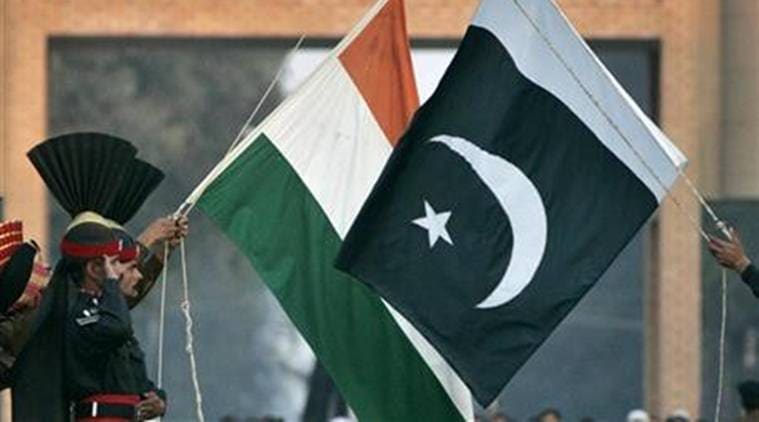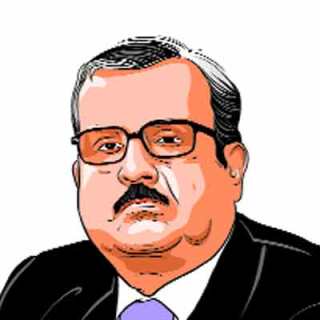In last five decades, the complexion of India’s confrontation with Pakistan has changed
In conventional warfare, we probably have a decisive edge but any protracted war at this point of time is unlikely to remain conventional.

Amid war cries, memories flood my mind of wartimes past. In 1961, the Chinese streamed into the Northeast and marched relentlessly towards Tezpur, driving back an inadequately armed, ill-equipped Indian army, used to years of peace and a threat-free environment. Those were the days when India believed Jawaharlal Nehru was invincible. And, indeed, he strode the globe like a veritable colossus in the Fifties, the founder and leader of non-alignment, the creator of the Panchsheel contract with China, the votary of global peace and disarmament. I recall the large advertisements and headlines in the newspapers and periodicals of the day proclaiming, “When Nehru leads, victory is ours.”
We, as a nation, have progressed much since those days but we have not recovered from our colonial obsession with the concept of infallibility of individual leaders, regardless of the fact that the founding fathers of our Constitution have given us, in their wisdom, a Westminster model of parliamentary democracy, where leadership is collective, where responsibility resides in the Cabinet as a whole rather than in any one person or his office. When the time came to find a scapegoat, the unpopular defence minister took the blame even though it was Nehru who had proclaimed on October 12, 1962, that he had ordered the Indian army to clear the NEFA areas of Chinese invaders. The king could do no wrong then and the king can do no wrong now.
When we first went into a regular war with Pakistan, I was in college. India’s prime minister was a mild-mannered man, quite the antithesis of his predecessor, liked by all and worshipped by those who worked with him. The western front with Pakistan was opened up at several points as “surgical strikes” were made into Indian territory. Pakistan demonstrated superior firepower and armoury, acquired from the US at the height of the Cold War. The decision was boldly taken to use air power and the balance was restored. We lived in Delhi and there was the frequent threat of air attacks. Black sheets were stuck against windowpanes to keep the light out to delude enemy warplanes. In each locality, residents formed groups and took turns walking up and down the streets with stout sticks in their hands to keep opportunistic thieves at bay. Air-raid sirens would blare out occasionally and fear prevailed until the threat passed.
In college, there was a frenzy of excitement. NCC training had been made compulsory after the 1961 war in the hopeful but mistaken belief that marching up and down in heavy army boots a couple of days each week would make soldiers of us. Rumours of all kinds were floated with alacrity, less speedily and less pervasively, no doubt, as there was no social media, no news channels, not even TV. When the war ended, Lal Bahadur Shastri once again showed his mettle. At Tashkent, he had the courage to make peace with Pakistan. I recall newspaper pictures of the man, dwarfed completely by the huge, hulking figure of his Pakistani counterpart, shyly shaking hands with him. It takes a great deal of courage to make and maintain peace. It is easier to let things go their own way and start a fight, to join in the jingoistic war-mongering cries of irresponsible people who never expect to fight or be hurt themselves. The soldiers can go and fight and lose their lives, we can sit on the sidelines and watch the fun. After the war, we can make patriotic noises and do little, insignificant things for soldiers. Shastri died the next day and the course of Indian history changed.
1971 was different in that it was a war that was politically-crafted and patiently led. The simmering discontent in East Pakistan had been sharply watched and unobtrusively supported. The plans for intervention had been carefully laid out over a period of months. War was started when the occasion was right, when we were completely ready, when political factors were in our favour, when the Pakistani political world itself was riven with dissension and strife. India swept through the eastern half of Pakistan and made inroads into the western part. This time, the surrender did take place and Bangladesh was born.
The only time I ever went to Pakistan was immediately after the 1971 war. IAS officers have to go through a period of military attachment and my group was attached to the army inside Pakistani territory, in the Shakargarh sector on the banks of the river Ravi. We lived in tents and were made to toil hard from dawn to dusk. Overall, it was an unforgettable experience. The army sends its best cooks to forward formations and the food was literally out of this world. In those days, those of us who had ceased to be teetotallers, had the added incentive of being able to consume large quantities of alcohol. I still remember a beautiful afternoon relaxing on rubber dinghies on the river Ravi, then shallow and placid, drinking beer and consuming an enormous amount of snacks. We were half-a-century younger and digestion was correspondingly strong.










.png)




























No hay comentarios:
Publicar un comentario